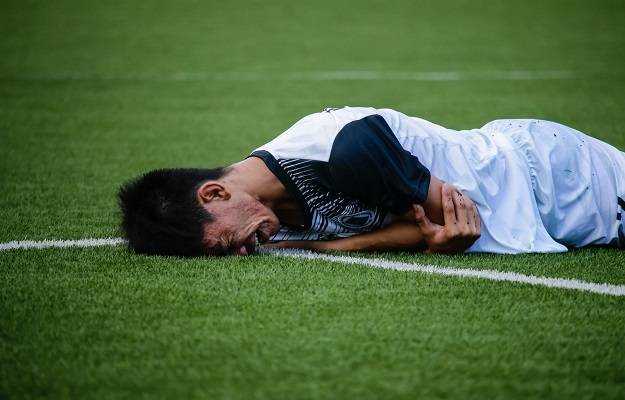As mentioned before, overexertion can be caused by a number of factors and may present itself through multiple signs and symptoms. The treatment of overexertion largely depends on these underlying causes and symptoms. The following are some common results of overexertion and how to treat them.
Chronic pain
Whether you’re an athlete or somebody who has a physically demanding job (including domestic work), chronic overexertion is likely to lead to chronic pain. While pain in the muscles is most commonly associated with chronic overexertion, the pain can also present in areas like the lower back. If the overexertion is not dealt with, this pain can become much worse and debilitating, potentially impairing movement and function in the future.
Consult a doctor if your pain is too acute. It’s likely the doctor will recommend rest, proper nutrition and a gradual transition to normal activities by starting out slow with only a few light activities. If your pain is too much to bear then you might also need over-the-counter medications and physiotherapy.
(Read more: Home remedies for body pain)
Injuries
Another common effect of overexertion is an increased risk of injuries. A study published in Sports Health in 2020 indicates, for example, that overexertion leads to soft tissue damage and related injuries. Muscle tears, rotator cuff tears and joint instability can also be caused due to overexertion. This apart, your risk of falls and related injuries also increase, especially if you also have symptoms like dizziness and fainting spells.
These injuries are best treated by a professional, so consult a doctor as soon as possible. Joint and muscle injuries are usually treated by resting the concerned areas, wearing a brace to reaffirm its stability and doing light stretches guided by a trained physiotherapist. Applying hot or cold compresses and taking over-the-counter medications can help you deal with the pain of these injuries.
(Read more: Workout injuries)
Cardiovascular events
Any kind of intense physical activity can increase your heart rate, which also means that your blood is pumping hard and circulating quickly throughout the body. If you’re healthy and aren’t overexerting yourself then this increased heart rate is a good thing. However, if you have heart disease - even an undetected one - or suffer from high blood pressure, high cholesterol or blood circulation issues then overexertion can prove to be quite dangerous and cause strokes, heart attacks and heart failure.
If you have a diagnosed heart condition and are on beta-blockers then the effects of overexertion can be masked, which can also increase your risk of negative outcomes. Consulting a doctor and adhering to their guidance and prescriptions is vital in these cases. You might be given medications, recommended changes in your lifestyle and referred to a physiotherapist to restart physical activity as per your individual needs and pace of recovery.
Low immune responses
A study published in the International Journal of Sports Medicine in 1998 indicates that both acute and chronic overexertion can affect your immune system. The study explains that even a single bout of exhausting exercise can cause subclinical muscle damage and trigger inflammatory immune responses in your body. The researchers show that the immune functions that change in your body due to overexertion are similar to those found in sepsis patients.
What’s worse, chronic overexertion can cripple your immune responses and make you more susceptible to illnesses, especially infections and wounds or injuries that take too long to heal. The best way to deal with this decline in immunity is take ample rest and give your immune system a good boost. You could do this by consulting a doctor and a nutritionist who can recommend a nutrient-dense balanced diet and any dietary supplements you may need.
(Read more: Weak immune system)
How long does it take to recover
Recovering from overexertion will depend largely on your individual causes, symptoms, underlying conditions and results of overexertion; the individual recovery time is also likely to vary accordingly. If you have pain or an injury then it’s likely to take a couple of weeks of complete rest to make a full recovery. Recovery from more complicated effects of overexertion may take longer.
For example, if you have chronic pain or heart disease then apart from resting up for a few weeks, you may also require long-term changes to manage your chronic condition better. Because these effects are chronic and may reappear every time you overexert a bit beyond your threshold, recovering from these can take years if complete recovery is at all possible. If it’s not possible to recover completely then managing your condition and refraining from overexertion for the rest of your life is the best that can be done.

 Doctors for Overexertion
Doctors for Overexertion 















































